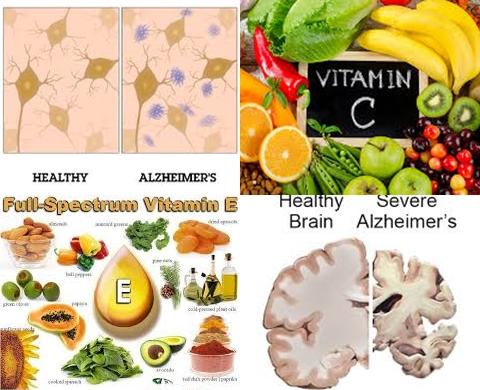
Objectives:
In view of the vital role of oxidative stress in the pathogenesis of Alzheimer's disease (AD), the potential of antioxidant supplements to prevent AD have gained much interest, while there are conflicting results on this topic in recent years. Therefore, this review article has been conducted.
Does dietary intake of vitamin C and E and β-carotene decrease risk of Alzheimer's disease?
Study design:
This review article included 7 articles (dietary intake, but no supplements).
Results and conclusions:
The investigators found a significant decreased risk for Alzheimer disease of 24% [pooled relative risk = 0.76 95% CI = 0.67-0.84] for dietary intake of vitamin E and of 17% [pooled relative risk = 0.83, 95% CI = 0.72-0.94] for dietary intake of vitamin C.
However, the investigators found a non-significant decreased risk of 12% [pooled relative risk = 0.88, 95% CI = 0.73-1.03] for dietary intake of β-carotene.
The investigators concluded dietary intakes of vitamin C and E lower the risk of Alzheimer's disease, with vitamin E exhibiting the most pronounced protective effects. The findings will be of significance to the prevention and interventional treatment of Alzheimer's disease.
Original title:
Dietary intakes of vitamin E, vitamin C, and β-carotene and risk of Alzheimer's disease: a meta-analysis by Li FJ, Shen L and Ji HF.
Link:
http://www.ncbi.nlm.nih.gov/pubmed/22543848
Additional information of El Mondo:
Find more information/studies on vitamin C and E and carotenoids right here.